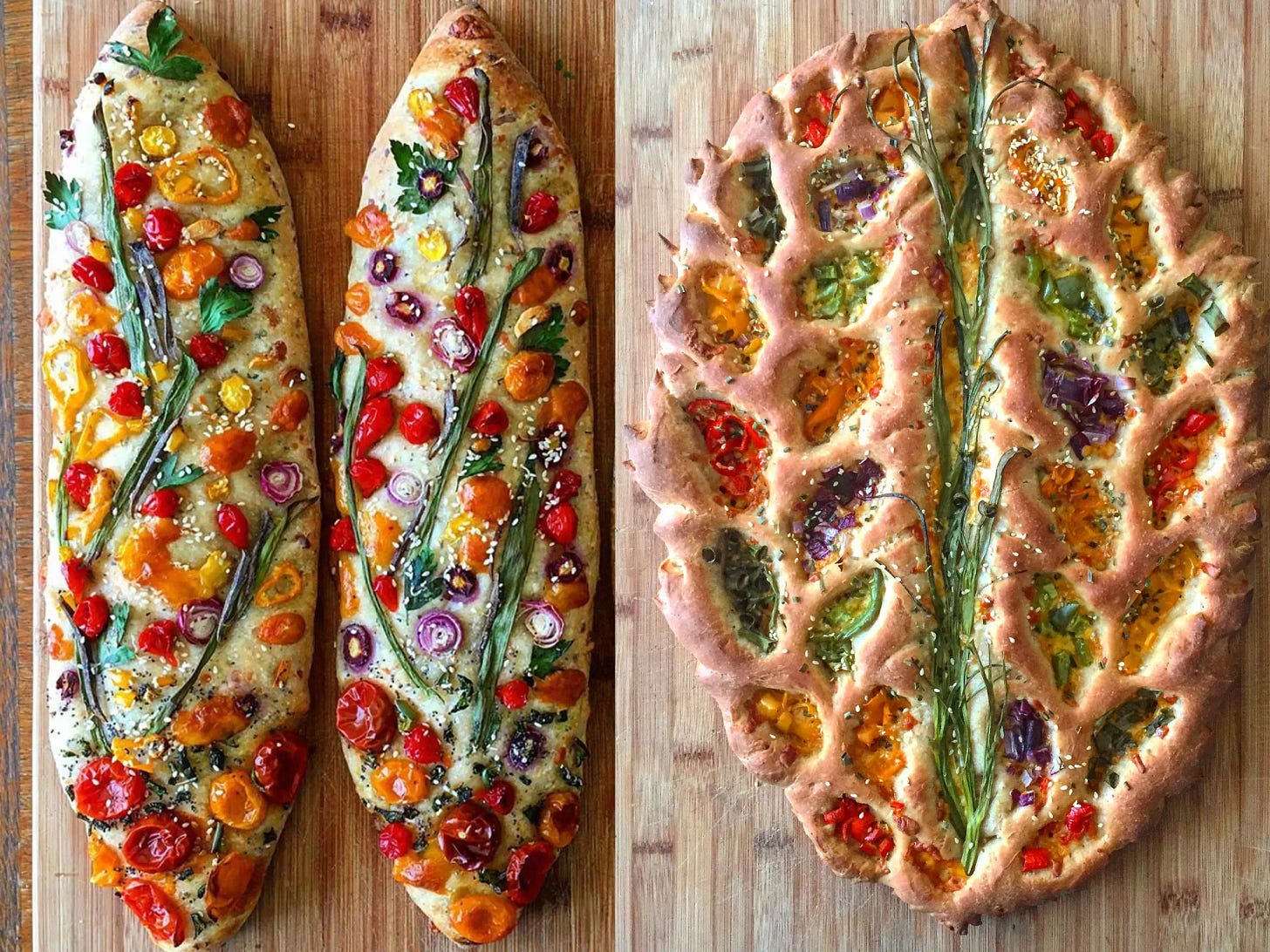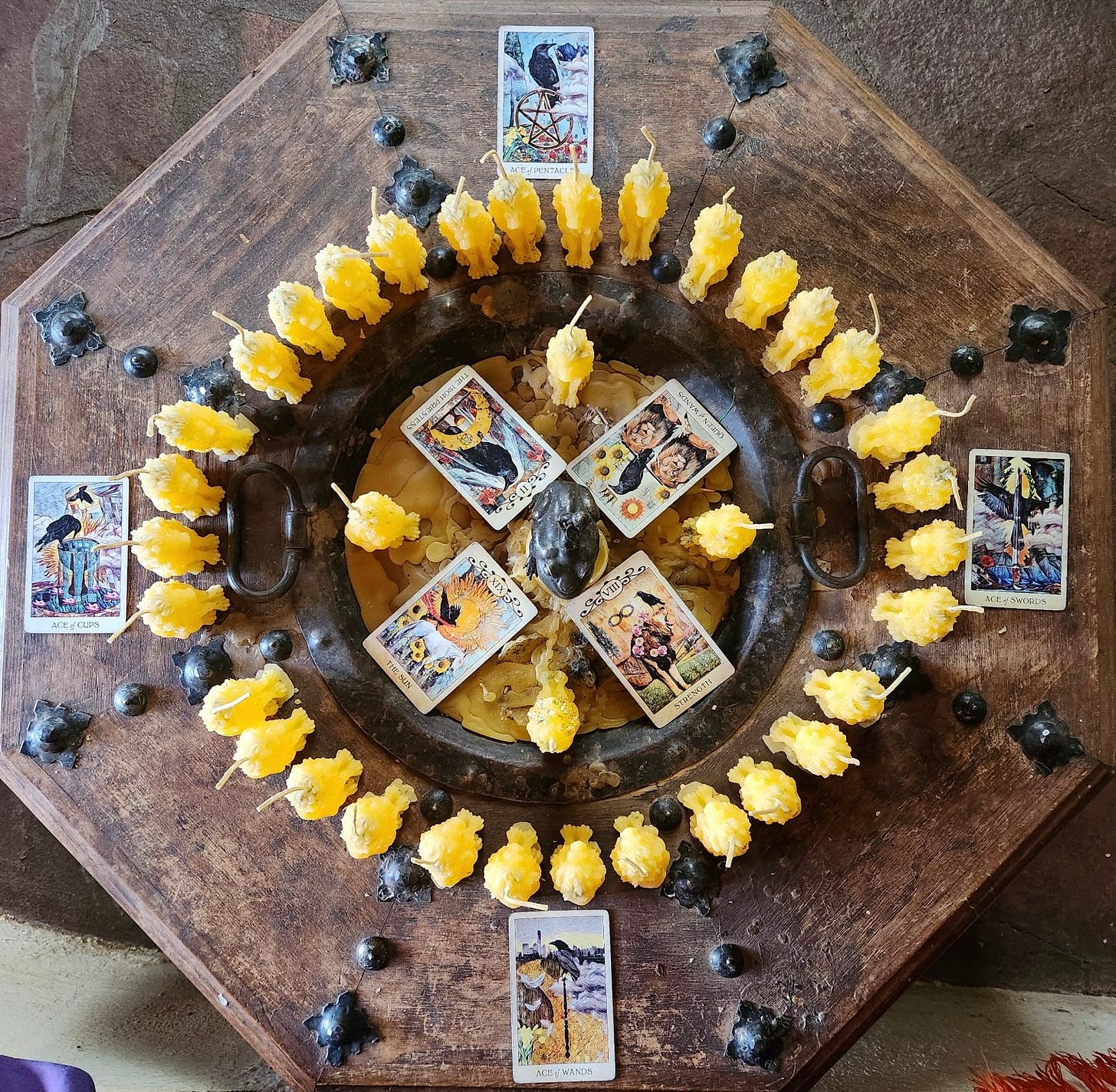How to celebrate Lúnasa like a god who knows how to do everything 🌞🌞🌞
Histories, Mythologies, Music, Spells & More
Inside: a deep dive into the history, mythology, and practice of the pagan holiday of Lúnasa, plus music recommendations and celebration ideas. Since this post is a wee bit long I also recorded a voice over for those of you who want to listen while you’re making your breakfast. But don’t forget to scroll through because there’s some great images in here as well!

Lughnasadh, Lughnasa, Lúnasa?
Even though Lughnasadh is celebrated by most pagans on the 1st of August, it’s important to remember that traditional festivals such as this one didn’t originally correspond to the astronomical calendar.
Lughnasadh is the official opening of harvest season, and is the first of three harvest festivals, the last being Samhain on October 31st. In Irish Gaelic, the entire month of August is called Lúnasa, and historically the festivals related to this holiday began sometimes as early as mid-July.
Naturally, the harvest is dependent upon the soil, the weather, the crops planted, etc. Even festivals that have their roots in the harvest are usually also influenced by animal husbandry (sheep returning from pasture, for example), wine and beer making schedules, fruit harvesting, church ceremonies, saint feast days, as well as secular festivities such as victory days, independence days, and celebrations of national heroes.
There is no purity in holiday culture.
Often, all we know of pre-Christian pagan holidays doesn’t come from the pagans themselves, but from the prohibitions monks wrote down in the 11th and 12th centuries: thou shalt not dress like an animal and dance around the bonfire. Thou shalt not make a corn dolly and lay her in the ashes of the hearth nor say that you fly at night with the Goddess Diana.
According to the encyclopedia of European Mythology, the festival of Lughnasadh included “gathering on hilltops, dancing, wrestling, racing, picking berries and wildflowers, wooing, and sometimes brief fights [lol].”
For many centuries after Christian conversion, the pagan gods of ancient times were nearly forgotten, although their celebrations continued through a sprawling assortment of festivities. The only address to the gods came through symbols of which people had long forgotten the meaning. In the case of Lughnasadh, corn [aka wheat] and bulls were the most common.
Each of the cross quarter pagan holidays corresponds to a time of life:
Imbolc: Childhood
Beltane: Youth
Lúnasa: Middle Age
Samhain: Old Age
Middle age is usually the time when people start to reap the benefits of all the education, hard work, struggle, and mistakes of their youth — so too this holiday invites us to honor the mistakes, struggle, and accomplishments that have transpired during this solar year.
Lúnasa is the time to celebrate achievements and that which we have brought to fruition.
Since pagan holidays always have a communal and individual aspect, this holiday is also about recognizing all the work that’s been done in your community, nation, or the land on which you live, reflecting on what could have been done better, and considering how to rectify those mistakes.
It’s a time to celebrate achievements, but also reflect on past choices, and embrace the maturity that comes through experience.
The God Lugh

The name Lughnasadh comes from the Celtic god Lugh, meaning “Shining One” a power known throughout the Celtic world also as Lugos in Gaul, Lleu in Welsh, and so on. As the vigorous god of light and bringer of heat, Lugh is master of all crafts, gifted in all games, and is the initiator of genius within us all.
Most famously, Lugh was the keeper of one of the four treasures of the Tuatha De Danaan, the unstoppable spear of fire, Gae Assail. So if you’re a tarot buff, you might think of Lugh as the King of Wands, a potent being of great skill and passion, who guides us to fulfill our creative potential.
The word “nasadh” means assembly or games in Gaelic, so Lugh nasadh means, “the Games [or gathering] of Lugh.” The spelling Lúnasa is the modern Irish version, but I normally spell it Lughnasadh, because that’s the way we spelled it here in California when I was growing up. But since Lúnasa is shorter, and sometimes I feel lazy, I spell it that way as well.
(Either way you spell it, I promise someone will pop in to correct you on social media so it’s good to know the history so you can say, “well, actually…” LOLBCI).
To make matters more complicated (but also more interesting!), when the Christians colonized the British Isles, they (deliberately) mistook the word “hlaf” meaning loaf of bread for “Lugh” and thus the pagan holiday of Lúnasa became Hlāfmæsse in Old English, Loaf Mass, or now Lammas, with all the Christian connotations implied by bread and the eucharist.
Over a thousand years, the holiday braided various cultures together like the Lammas bread itself, mixing Christian, Catholic, Celtic, modern syncretic, and pre-historic pagan traditions.
A Holiday in the Name of Tailtiu

Legend has it that Lugh initiated the festival of Lughnasadh as a harvest and funereal festival in honor of his foster mother, Tailtiu, a goddess of the old gods, the Fir Bolg.
After the newly arrived Tuatha de Danaan conquered her people, Tailtiu was forced to labor, clearing the plains of Ireland so that the conquerers could grow their crops. She died of exhaustion from the effort and where her body fell, her foster son Lugh, a god of the Tuatha, erected a burial mound.
One of my mentors at UCLA, Peter Sellars, says that:
… every character in a myth is you. Both conqueror and conquered are you. All the gods are you. The land is you.
And I would add that since there is no separation between self and world, every character in a myth is everyone, and every thing.
Tailtiu holds great resonance for me at the moment.
It’s Sunday afternoon, and I’ve spent the weekend indoors, laboring over an independent study essay that I still haven’t finished, a bunch of administrative tasks, and this essay (as joyful as it is to write, I wish I had more hours in my weekend to write it AND get outside to the beach).
My heart’s been breaking a little this summer because I thought I’d be able to take some time off, and somehow, it just never seems to happen. Deadline after deadline looms.
And of course, I’m not alone in this. I think of all the people struggling far more than I, who have worked themselves to death laboring in fields, in the labor of childbirth, as caregivers in the battlefield.
The history of capitalist colonialism, potentially even the history of agriculture itself, is the history of people who’ve ground away their health in relentless work.
Note that August 1st, 1834 is also the day enslaved people throughout the British commonwealth won their emancipation.
In the more-than-human realm, the myth of Tailtiu is also the story of land, cleared of her forests in order to provide a place for agriculture.
When we invoke the name of Tailtiu via the myth, we are invoking and honoring all beings who give their body so that others might live.
Which, ultimately of course, is all beings, since all living beings are composed of those who have died.
For that reason I find Lughnasadh a particularly poignant holiday.
We are all Tailtiu, collapsing in endless work. And we are Lugh, the Shining One, spirit of inspiration, who recognizes our efforts, shines a light upon us, and creates a festival in honor of all we’ve done.
I’d love to hear what this story brings up for all of you. Share your thoughts in the comments below. xo
How to Celebrate

Bake Lammas bread (I gave you a recipe in this month’s Witch Guide) and bless it on your altar in honor of Lugh and Tailtiu. To bless it, simply say what you wish to give thanks for, and what you hope for the bread to nourish in all who partake of it.
Begin your Lion’s Gate spell on the first (instructions in this month’s Witch Guide, links in the subscriber section below)
Light a candle in honor of Lugh (there’s still time to get a Circe’s Lion candle from Theyfriend candle!! Please note that they charge and bless each candle especially for this spell!)
Listen to the music I linked to below
Harvest potatoes, corn, or wheat (traditional) or at least eat them
Get really traditional and go to a hilltop to dance, eat berries, wrestle, woo, and maybe have a little fight!
Share this post to your socials to let people know how to join in the festivities
Musical Inspiration for the Lúnasa Festival
A fun way to get into the spirit of any seasonal festival is to listen to music. Music comes from the realm of Annwn, afterall - the places where all inspiration comes from.
First, I love this album of polyphonic chants from the 13th and 14th centuries in celebration of Lammas and the feminine deity who is the source of nourishment in the form of wheat and corn.
The next one is a traditional Irish musical group named after the festival of Lúnasa. You’re going to want to put your folk dancing shoes on when you listen to this one. Enjoy!
Gifts and Reminders for Subscribers: Lughnasadh Spell Suggestions and Recipes




